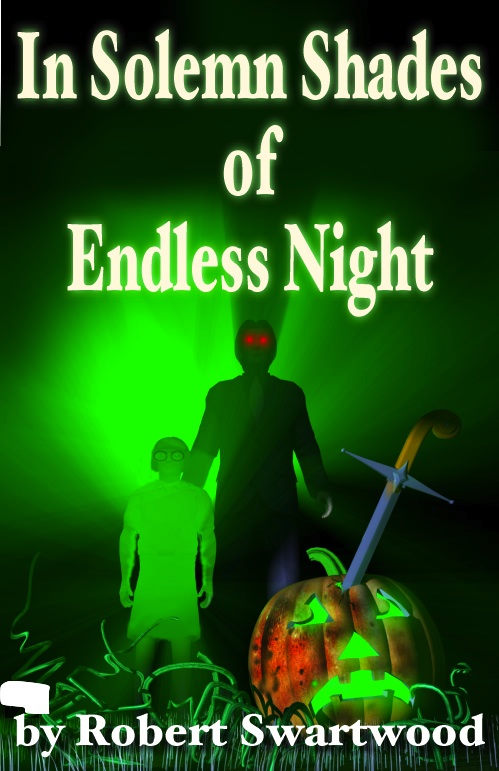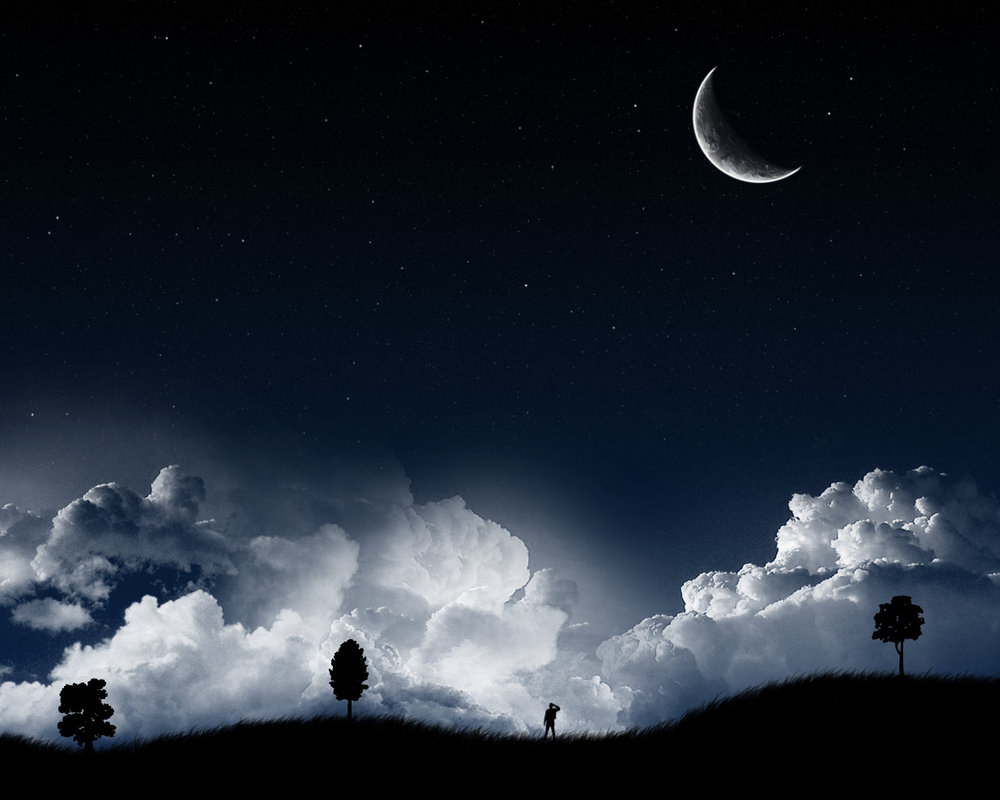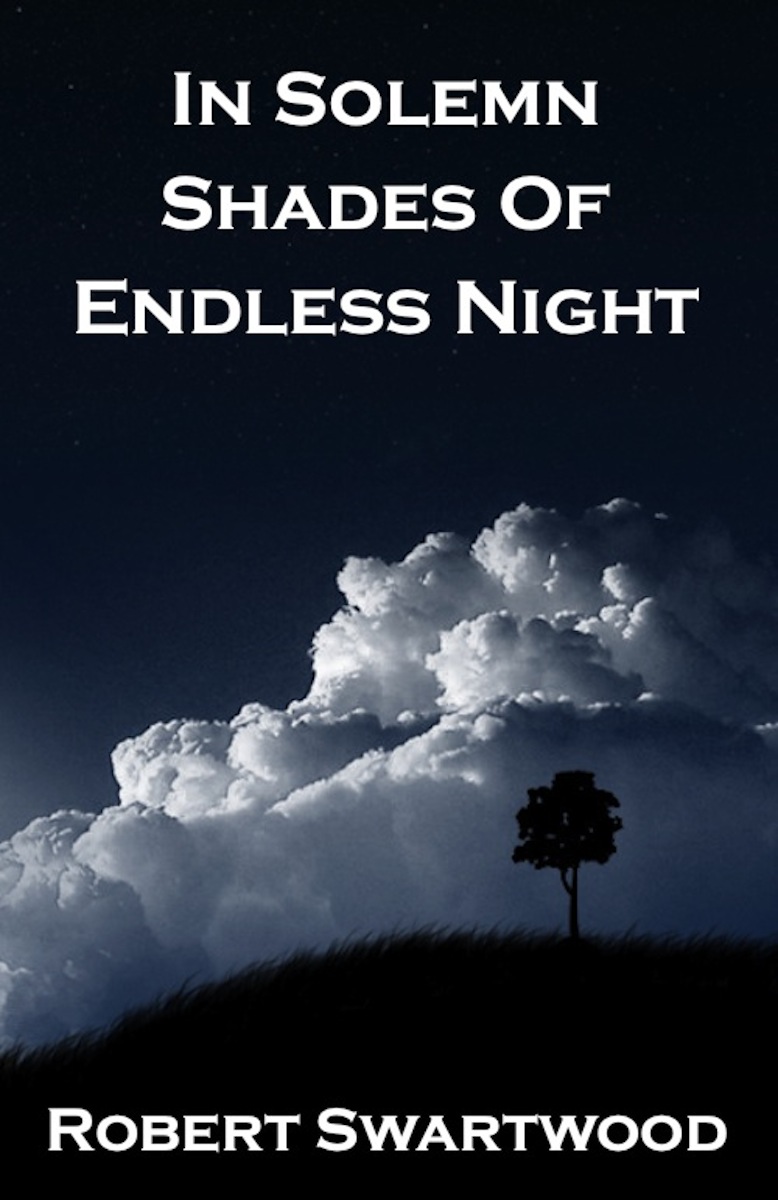... I'll be knee deep in AWP. In fact, one week from today is the Hint Fiction panel. If you're going to be at the conference, do yourself a favor and make sure to attend. In case you haven't seen it yet, here are the details:
Februrary 4
3:00-4:15 pm
Virginia B Room, Marriott Wardman Park, Lobby Level
Hint Fiction: Stories that Prove Less is More. (Robert Swartwood, Randall Brown, Michael Martone, Daniel Olivas, Roxane Gay) The editor of the recent Norton anthology and its contributors examine stories of extreme brevity. They will discuss whether these stories are considered actual stories, and whether they hold substance, focusing on these questions: Do works of this length help or hinder writers? Can these tiny stories have just as much impact as stories of traditional length? The panelists will share their own hint fiction and discuss its role in the ongoing evolution of literature.
And in case that doesn't convince you, I even created an event for the panel on Facebook. So yeah, now you know just how serious this is. People don't just create events on Facebook willy-nilly, you know?
Tonight I printed out the AWP conference schedule. A ream of paper and a replacement of toner later, I realized the list of panels was way too much to go through tonight. So instead I skimmed through the Thursday schedule to see if anything looked interesting. The problem with a conference this big is that sometimes there are just way too many panels you aren't interested in for a certain time slot, while sometimes there are a lot of panels you're interested in for a certain time slot.
My list of potential panels and thoughts on those panels after the jump.
9:00 am - 10:15 am
R109. Short Story to Novel. (Alan Heathcock, Heidi Durrow, Alexi Zentner, Téa Obreht, Marie Mockett, Eugenia Kim) Debut novelists often publish excerpts of their finished works as short stories before tackling a full manuscript. Yet the way from short story to published novel is not always smooth. Four debut novelists, who did publish parts of their books as short stories, will discuss the journey from short story to novel, with an eye toward helping other emerging writers.
R110. Hired!: Landing the Elusive Tenure-Track Job. (Caitlin Horrocks, Jennifer Kwon Dobbs, Darrin Doyle, Nick Kowalczyk, Forrest Anderson, Kelcey Parker) Six recent tenure-track hires in fiction, poetry, and nonfiction discuss their diverse experiences and offer advice and guidance on the search for a teaching position. They’ll discuss every stage of the job search, from researching positions to writing cover letters, to the interview and the campus visit, providing insight into what you can control, what you can’t, and what you should do to prepare. Ample time will be provided for questions.
R112. CLMP Panel—So You’ve Made an eBook… Now What? (Ira Silverberg, Gloria Jacobs, Julie Schaper, Andy Hunter) A marketing-focused symposium for publishers about how small presses and literary magazines can make the most out of paperless publishing.
Andy Hunter, by the way, is one of the co-founders of Electric Literature, and I'm huge fan of the journal and their business model. But the thing is, I think you have to be a member of CLMP to attend that panel, so maybe that panel is out. Anyway, moving on ...
10:30 am - 11:45 am
R132. Things That Go Bump When You Write: Monsters, Myths, and the Supernatural in Literary Fiction. (B.J. Hollars, Bryan Furuness, Hannah Tinti, Laura van den Berg, Scott Francis) What do Bigfoot, the Loch Ness Monster, and ghosts all have in common? For one, over the past year, they’ve all managed to stomp, swim, and haunt their way onto the literary scene. Join writers as they discuss their experiences implementing supernatural elements into their fiction. Panelists will offer tips on how to add credibility to the incredible and humanity to the inhuman. They will also explore the evolving definitions of gothic and grotesque in the 21st century.
R139. Trends in Contemporary Flash Fiction: What Are Editors Looking For? (Tom Hazuka, Todd James Pierce, Leah Rogin-Roper, Robert Shapard, Ryan G. Van Cleave) Flash fiction may be elusive to define (stories of 500 words? 750? 1,000?), but there is no denying its widespread appeal to both writers and readers. What do editors want in the flash fiction stories they publish? Five editors of both recent and classic short short story anthologies (Flash Fiction, Flash Fiction Forward, You Have Time for This, etc.), who are also widely published writers, discuss trends in contemporary flash fiction and what they look for in stories for their anthologies.
R140. Strangers on a Train: What Poets Can Learn from Hitchcock. (Michelle Mitchell-Foust, Ralph Angel, Stephanie Brown, David St. John, Suzanne Lummis) Over the course of eleven days, Alfred Hitchcock used 80 camera angles and nine actors to create 1 minute and 48 seconds of film—his shower scene for Psycho. This attention to detail is also the poet’s work. Hitchcock reveals a psychological density in his films that many contemporary poems aspire to. The panelists examine his narrative structures, scenes, interview material, and Hitchcock-inspired poems, in a discussion of what Hitchcock’s vision provides to today’s poets.
As someone who likes to dabble in the supernatural from time to time, that first panel is definitely at the top of my list. But then again, I'm really interested to hear what Robert Shapard and company have to say about flash fiction. And then, of course, you have a panel that's inspired by Hitchcock, so what's not to love?
Noon - 1:15 pm
R152. Narrative Structure: The Episodic and the Epiphanic. (Jack Harrell, Erin McGraw, Josh Allen, Nicole Mazzarella) In Best American Short Stories 2000, E.L. Doctorow noted a shift more disposed to the episodic than the epiphanic, moving the modern story toward the earlier form of the tale. Does this trend in fiction continue? Should it? Since anti-story musings of the 60s, the epiphany has been cast as a naïve insistence on meaning. Will globalism and cultural ecumenism further the shift to the episodic, bringing about the climax and the denouement of the literary epiphany itself?
R160. The Future of the Book Review: How to Break In. (Salvatore Pane, Roxane Gay, Irina Reyn, Emily Testa, Paul Morris) The rise of the book blogger has forever altered the traditional book review. But what is the state of the book review moving forward in a digital culture, and how do interested parties actually go about becoming reviewers? Panelists including the editor of PANK, the book review editors of BOMB and Hot Metal Bridge, and published writers currently working in the field will answer these questions and more.
R161. Scripting Curriculum: Integrating Playwriting and Screenwriting into the MFA in Writing Program. (Kathleen Driskell, Steven Cramer, Tod Goldberg, Charlie Schulman, Charlene Donaghy) MFA programs—particularly those that are low-residency—have begun teaching playwriting and screenwriting next to the more commonly taught genres of fiction, poetry, and creative nonfiction. Directors and faculty members from Lesley, Spalding, and UC Riverside will discuss the challenges of teaching writing that has been traditionally housed in film schools or theater departments, and the enrichment gained from adding scriptwriting to their programs.
R162A. Playwriting and Screenwriting: Their Business in the Academy. (Bonnie Culver, Ken Vose, Ross Klavan, Jean Klein, Juanita Rockwell) This presentation discusses the difficulties and successes of including playwriting and screenwriting in writing programs. Both genres demand a different approach in writing and business acumen than poetry, fiction, and nonfiction. What are those challenges? How has one program decided to embrace the potential conflicts and make a place for these “less academic” writers. Wilkes faculty discuss how screenwriting and playwriting techniques are integral parts of the program curriculum, from poetry to nonfiction.
R164. The PSA Presents: A Reading and Interview with Stephen Dunn. (Robert N. Casper, Stephen Dunn) Pulitzer Prize-winner Stephen Dunn will read his poetry, followed by an interview with Poetry Society of America Programs Director Robert N. Casper.
A lot of good panels around noontime. Which might conflict with lunch, so that's a problem. And while those panels all look really interesting, how often does one get a chance to hear Stephen Dunn read his work?
1:30 pm - 2:45 pm
R172. Writing: What To Teach, How To Teach It, and Why. (Meg McGuire, Marie Ponsot, Rosemary Deen, Jackson Taylor, Catherine Yeager, Ruth Nathan) In the almost 30 years since its publication Beat Not The Poor Desk by Rosemary Deen and Marie Ponsot has never been out of print and its pedagogical principles have influenced the creative writing classrooms of hundreds of teachers. In its opening line the book asserts, “Writing is one of the great human pleasures and is done in the energy of that pleasure. There is great professional pleasure in teaching it.” Deen and Ponsot lead us to recognize that the use of writing is thinking and that while each piece of writing is unique—all writers use the same five elements in composing. Here we revisit and celebrate this classic text with its authors, Rosemary Deen and Marie Ponsot, and with teachers who’ve practiced its pedagogy: Catherine Yeager and Jackson Taylor. Moderated by Meg McGuire.
R173. Beyond Psychobabble: Finding Effective Language for Workshop Critiques. (Susan Hubbard, John Hales, Liza Wieland, Anna Leahy, Darlin’ Neal) What constitutes effective feedback in a creative writing workshop? Why do students often speak like psychological counselors? Four teachers/writers of fiction, nonfiction, and poetry discuss strategies for shaping discussions that are provocative, not overly emotive or unduly self-reflexive. Borrowing criteria and terminology from other art forms, and avoiding psychobabble, can be useful first steps in fostering students’ fluency in making critical statements in and out of the classroom.
R182. Agents & Editors: Best Practices for Securing Your Publishing Partners. (Mary Gannon, Julie Barer, Robert Lasner, Corrina Barsan, Greg Michalson) Agents and editors will give an overview of the literary market and their places within it, as well as providing a behind-the-scenes perspective on how they acquire clients or books and offering specific guidance to authors on the best practices for each step involved in partnering with publishing professionals.
I mention the last panel there not so much for myself but for anyone else who thinks they want/need an agent. You can read as many agent blogs as you'd like, but seeing them in action, actually talking about publishing, will give you a better sense of their personalities and what they have to offer.
3:00 pm - 4:15 pm
R189. The Art and Authenticity of Social Media: Using Online Tools to Grow a Community. (Jane Friedman, Tanya Egan Gibson, Guy Gonzalez, Bethanne Patrick, Christina Katz) Social media is easy to disparage as meaningless socializing, undignified shilling, or time better spent writing. Yet sharing information online and having conversations with readers is critical to spreading the word about what you (or your organization) does. Online community building can help develop a long-term readership, plus open up new opportunities. This panel discusses meaningful online social interaction, and how the panelists have seen it advance their careers or their organizations.
Nothing else in this time slot really popped out at me. Maybe on a second read-through something will. Or maybe this would be a good time for a quick nap.
4:30 pm - 5:45 pm
R212. Delinquents, Desperados and Drama Queens: Managing Unusual Personalities and Unexpected Situations in the Creative Nonfiction Classroom. (Amy Friedman, Hope Edelman, Michele Morano, Deborah A. Lott, Amy Wallen) Writing workshops can be delicate—things of beauty when students work as a community and challenging if someone demands too much, dismisses others, provokes, or acts out. Subject matter also can challenge ethically and psychologically—abuse, mental illness, sexuality. How can instructors manage these situations and serve all students? Panelists discuss ways to address and diffuse potentially explosive dynamics while maintaining focus on the work.
R213. Understanding Comics as Creative Writing. (John Woods, Matt Madden, Gary Sullivan, Luca DiPierro, Joseph Young) While the critical study of comics has been fully embraced by English Literature departments, creative writing programs have been slower to create a place for the practice of comics in their own curricula. Similarly, independent literary presses rarely publish comics, leaving that work to comics-specific houses. This panel features teachers and practitioners of the medium who will discuss ways to open up the creative writing field to the practice of comics (and other image-text literature).
R214. Ploughshares 40th-Anniversary Celebration. (Ladette Randolph, Eleanor Wilner, Kathryn Harrison, Colm Toibin, Elizabeth Strout, Terrance Hayes) This roundtable features six recent guest editors of Ploughshares magazine and celebrates 40 years of the journal’s founding commitment to showcasing diverse literary voices with each issue. Former guest editors read and discuss how they made choices for their issues.
R221. Fiction’s Future. (Tom Williams, Lance Olsen, M. Evelina Galang, Roy Kesey, Debra DiBlasi, Steve Tomasula) This panel invites five aesthetically diverse authors brave or foolish enough to respond to think aloud about fiction’s future. What might in fiction look like, read like, and why? What forms are we apt to see in the next five or fifteen years? What changes in publishing, distribution, media, and the sociohistorical landscape might impact what we mean when we say “fiction,” “journal,” “book,” “conventional,” and “innovative?” Should writers even concern themselves with such questions?
R224. A Screening and Discussion for The Times Were Never So Bad: The Life of Andre Dubus. (Edward Delaney) A screening of The Times Were Never So Bad: The Life of Andre Dubus with the filmmaker Edward Delaney, and others who participated In the fim. The documentary features interviews with Andre Dubus III, Tobias Wolff, Richard Russo, Christopher Tilghman and others, and has been an official selection the Rhode Island International Film Festival, the New England Film & Video Festival, among others, and has toured the country at many colleges and universities. The screening will be followed by a discussion and Q&A with the filmmaker and others who participated in the film. The film is 86 minutes long.
R228. Writing the Young Adult Novel. (Tami Lewis Brown, Zu Vincent, Carrie Jones, Stephanie Greene, Helen Hemphill, Sarah Aronson) The young adult novel has exploded in recent years, and many adult writers are crossing over. What does it take to write for this burgeoning field? Six novelists publishing literary, historical, mainstream, and fantasy fiction for the young, discuss the similarities and differences in adult and young adult fiction that can help writers transition to this fresh—and often edgy—new genre.
A lot of interesting panels listed in this time slot. Not 100%, but I think I might be leaning toward the Young Adult panel. We'll see.
And that's basically Thursday's potential panel schedule. Like I said, I'll have to do another read-through to see if anything else sticks out. And if it does, then how does one choose which panels to attend? Because even though one panel might sound really interesting, it could turn out to be a dud. You just never really know.
So for those of you who are attending AWP, which panels (besides the Hint Fiction panel, of course) are you looking forward to?




